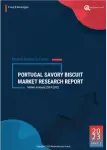Market Research Future (MRFR) has published a cooked research report on the “Global Automotive Radar Sensors Market” that contains information from 2017 to 2032. The Automotive Radar Sensors Market is estimated to register a CAGR of 12.69% during the forecast period of 2024 to 2032.
MRFR recognizes the following companies as the key players in the Automotive Radar Sensors Market— Robert Bosch GmbH, HELLA KGaA, Continental AG, Denso Corporation (Japan), Autoliv Inc., Valeo S.A, Infineon Technologies AG, NXP Semiconductors N.V, Texas Instruments Incorporated., InnoSenT - Innovative Radar Sensor Technology, and First Sensor AG.
Automotive Radar Sensors Highlights
The Automotive Radar Sensors Market is accounted to register a CAGR of 12.69% during the forecast period and is estimated to reach USD 12.15 Billion by 2032.
The Automotive Radar Sensors Market refers to the industry segment involved in the manufacturing, development, and distribution of radar-based sensor systems designed specifically for automotive applications. Radar sensors utilize radio waves to detect the presence, distance, speed, and direction of objects in their vicinity, making them crucial components for various advanced driver assistance systems (ADAS) and autonomous driving technologies.
The growth of the Automotive Radar Sensors Market has been driven by the increasing demand for safer and more efficient transportation solutions. As vehicle manufacturers aim to improve road safety and achieve higher levels of autonomy, radar sensors have become integral to achieving these goals.
Segment Analysis
The Automotive Radar Sensors Market has been segmented based on application and vehicle type.
On the basis of application, the market is segmented into Lane Change Assist (LCA), Adaptive Cruise Control (ACC), Autonomous Emergency Braking (AEB) and Blind Spot Detection (BSD). ACC is an advanced version of traditional cruise control. It uses radar sensors to monitor the traffic ahead and automatically adjusts the vehicle's speed to maintain a safe following distance from the vehicle in front. If the traffic slows down, ACC will also slow down the
Based on vehicle type, the market has been segmented into passenger car and commercial vehicle. Radar sensors in passenger cars help in implementing ACC, allowing the vehicle to automatically adjust its speed to maintain a safe following distance from the vehicle ahead.
Browse In-depth Details [Table of Content, List of Figures, List of Tables] of Automotive Radar Sensors Market Research Report
Regional Analysis
The Automotive Radar Sensors Market, based on region, has been divided into the North America, Europe, Asia-Pacific, and Rest of the World. North America consists of US and Canada. The Europe Automotive Radar Sensors Market comprises of Germany, France, the UK, Italy, Spain, and the rest of Europe. The Automotive Radar Sensors Market in Asia-Pacific has been segmented into China, India, Japan, Australia, South Korea, and the rest of Asia-Pacific. The Rest of the World Automotive Radar Sensors Market comprises of Middle East, Africa, and Latin America.
North America, particularly the United States, has been a significant market for automotive radar sensors due to its early adoption of advanced driver assistance systems (ADAS) and autonomous driving technologies.
Europe has also been a prominent market for automotive radar sensors, driven by stringent safety standards and regulations set by the European Union. The region's focus on reducing road fatalities and improving road safety has led to the widespread adoption of ADAS technologies, boosting the demand for radar sensors.
The Asia-Pacific region, led by countries such as China, Japan, and South Korea, has witnessed rapid growth in the automotive radar sensors market. Increasing vehicle production, urbanization, and traffic congestion have driven the adoption of ADAS technologies, creating a substantial demand for radar sensors.
Furthermore, the rest of the world's Automotive Radar Sensors Market is divided into the Middle East, Africa, and Latin America. While the adoption of radar sensors in Latin America is relatively slower compared to other regions, there is a growing interest in safety technologies due to increasing road accidents and awareness.
Key Findings of the Study
- The Automotive Radar Sensors Market is expected to reach USD 12.15 Billion by 2032, at a CAGR of 12.69% during the forecast period.
- North America, particularly the United States, has been a significant market for automotive radar sensors due to its early adoption of advanced driver assistance systems (ADAS) and autonomous driving technologies.
- Based on application, the market is segmented into Adaptive Cruise Control holding the largest market in 2022.
- Robert Bosch GmbH, HELLA KGaA, Continental AG, Denso Corporation (Japan), Autoliv Inc., Valeo S.A, Infineon Technologies AG, NXP Semiconductors N.V, Texas Instruments Incorporated., InnoSenT - Innovative Radar Sensor Technology, and First Sensor AG.
Leading companies partner with us for data-driven Insights
Kindly complete the form below to receive a free sample of this Report
| Companies Covered | 15 |
| Pages | 128 |
Certified Global Research Member


Why Choose Market Research Future?
- Vigorous research methodologies for specific market.
- Knowledge partners across the globe
- Large network of partner consultants.
- Ever-increasing/ Escalating data base with quarterly monitoring of various markets
- Trusted by fortune 500 companies/startups/ universities/organizations
- Large database of 5000+ markets reports.
- Effective and prompt pre- and post-sales support.
Tailored for You
- Dedicated Research on any specifics segment or region.
- Focused Research on specific players in the market.
- Custom Report based only on your requirements.
- Flexibility to add or subtract any chapter in the study.
- Historic data from 2014 and forecasts outlook till 2040.
- Flexibility of providing data/insights in formats (PDF, PPT, Excel).
- Provide cross segmentation in applicable scenario/markets.







